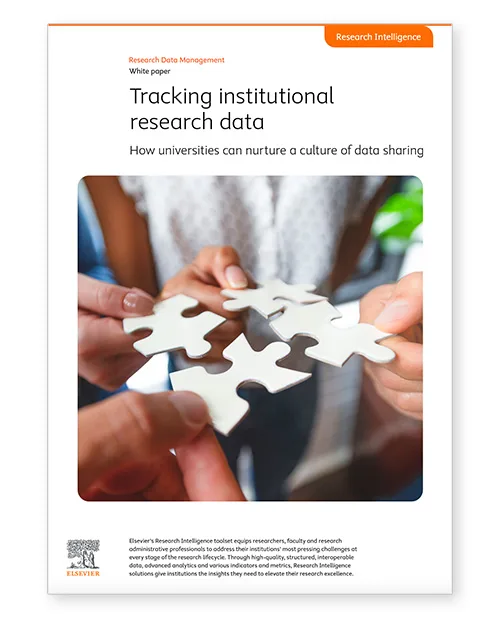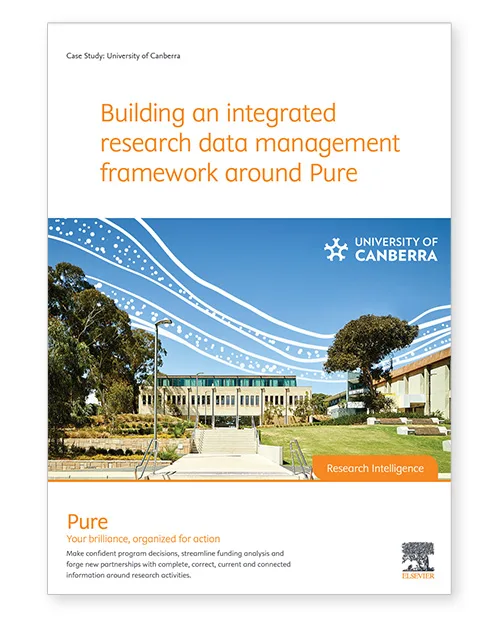Ready to find out how it works for your institution?

귀하의 브라우저가 완벽하게 지원되지 않습니다. 옵션이 있는 경우 최신 버전으로 업그레이드하거나 Mozilla Firefox, Microsoft Edge, Google Chrome 또는 Safari 14 이상을 사용하세요. 가능하지 않거나 지원이 필요한 경우 피드백을 보내주세요.
이 새로운 경험에 대한 귀하의 의견에 감사드립니다.의견을 말씀해 주세요
With today’s high level of interest in research integrity, transparency and openness, reinforced by policies sharing this direction, research data is rapidly rising up the agenda and now it’s time for action. Find out how to elevate your research excellence with Elsevier’s Research Intelligence toolset.
Use cases for research tracking
Your 10-step plan to begin tracking your institutional research data

Discover what the University of Canberra did in response to The Australian Code for the Responsible Conduct of Research which came into effect in 2019 and dictated principles of how data is stored, accessed and shared, and laid the onus of compliance on institutions and individual researchers.

10 things I wish I had known before my institution introduced RDM

6 great reasons you should engage with research data management

This work illustrates how clustering of author communities can be improved by using metadata about the authors (such as subject area or institutional affiliation) to supplement network structure based on co-authorship or citation relationships. Using such metadata can improve clustering significantly, both in terms of human interpretability and by allowing detection of smaller groups – but weighting metadata too highly in relation to network structure can be detrimental.

